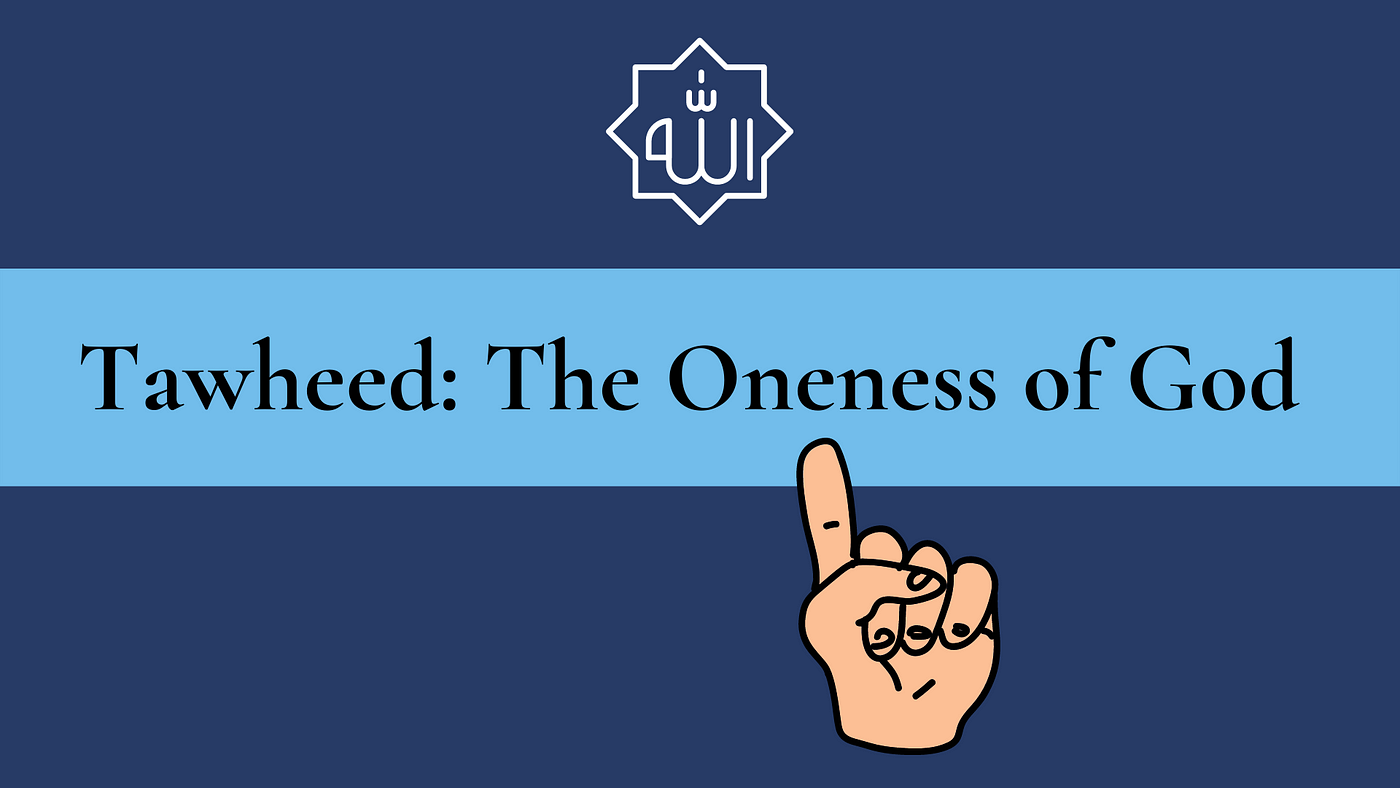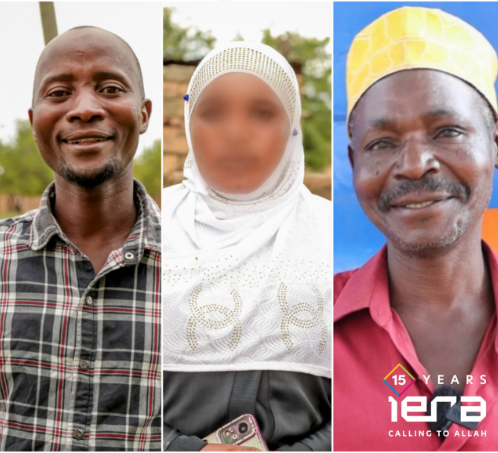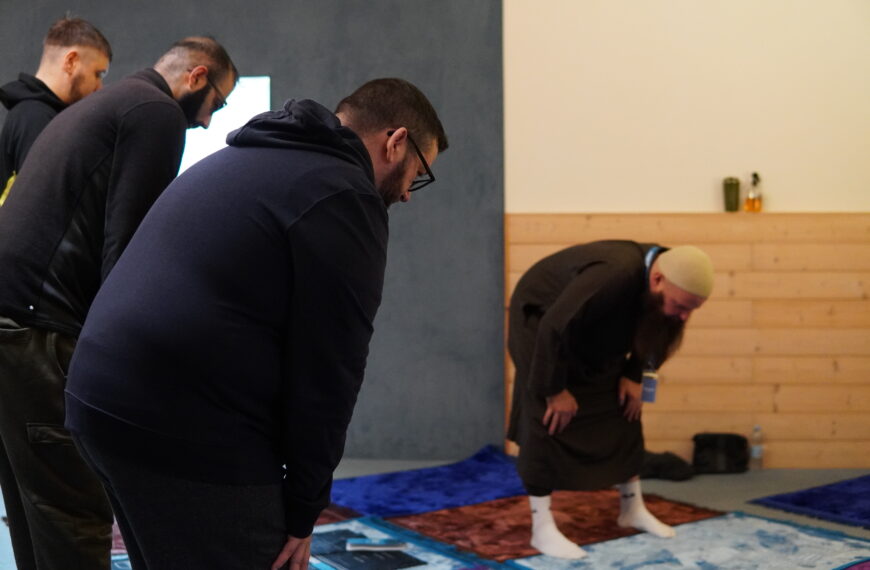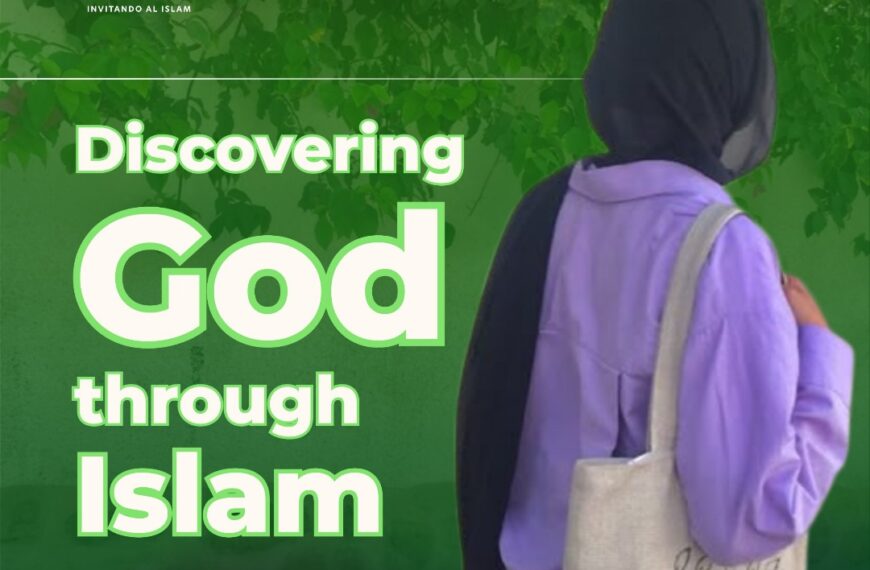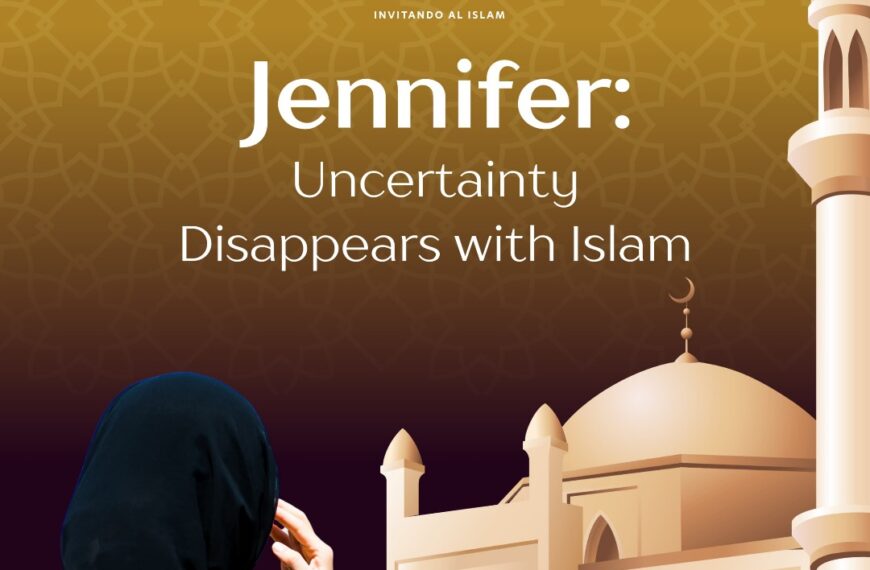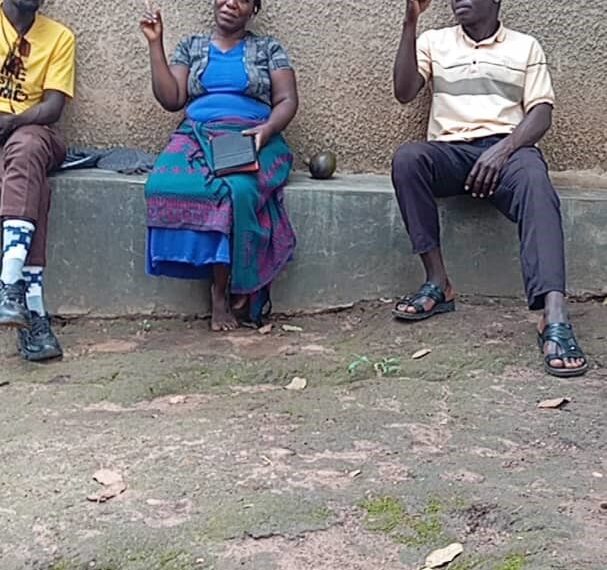Tawheed, the core principle of Islam emphasizing Allah’s absolute oneness, isn’t just a theological concept; it’s a bridge – a bridge to understanding, to interfaith harmony, and ultimately, to a deeper connection with the Creator. This blog post, inspired by our ongoing Thursday live Zoom sessions, dives into powerful practices for Dawah, exploring effective ways to share Tawheed with clarity, respect, and an open mind.
The Power of Simplicity: “How Many Gods?”
Forget complex theological arguments. Brother Rafael, sharing his experience from Mexico, suggests starting with a simple question: “How many Gods do you think there are?” More often than not, the answer is a resounding “just one.” This shared understanding becomes a springboard for exploring the logic behind Tawheed, challenging concepts like the Trinity or the divinity of Jesus.
To further illustrate the logic of Oneness, Brother Rafael employs relatable analogies that resonate deeply with his audience. He takes a scenario where multiple Gods exist, using the presidents of Mexico as an example. Imagine, he asks, the current president and his predecessor, known for their mutual hostility, ruling Mexico simultaneously.
“If Mexico, a single country, cannot operate with two leaders, can you imagine the entire universe governed by two entities?” Brother Rafael asks. This analogy extends to local teams, municipalities, or any unit where unified leadership is essential. The idea of a universe governed by multiple, potentially clashing, divine wills simply doesn’t make sense. It’s like two drivers attempting to steer a single car – chaos and collision are inevitable.
By starting with a relatable question and using everyday analogies, he opens the door to understanding the profound concept of Tawheed. He invites reflection without imposing beliefs, allowing individuals to reach their own conclusions based on inherent logic and common sense.
His approach demonstrates that Dawah doesn’t require complex theological debates. By starting with a simple question and building upon shared understanding through relatable analogies, we can unveil the profound truth of Oneness in a way that is both respectful and impactful.
The Quranic Insight: “YA-AYYUHAN-NASU’ABUDU RABBAKUM”
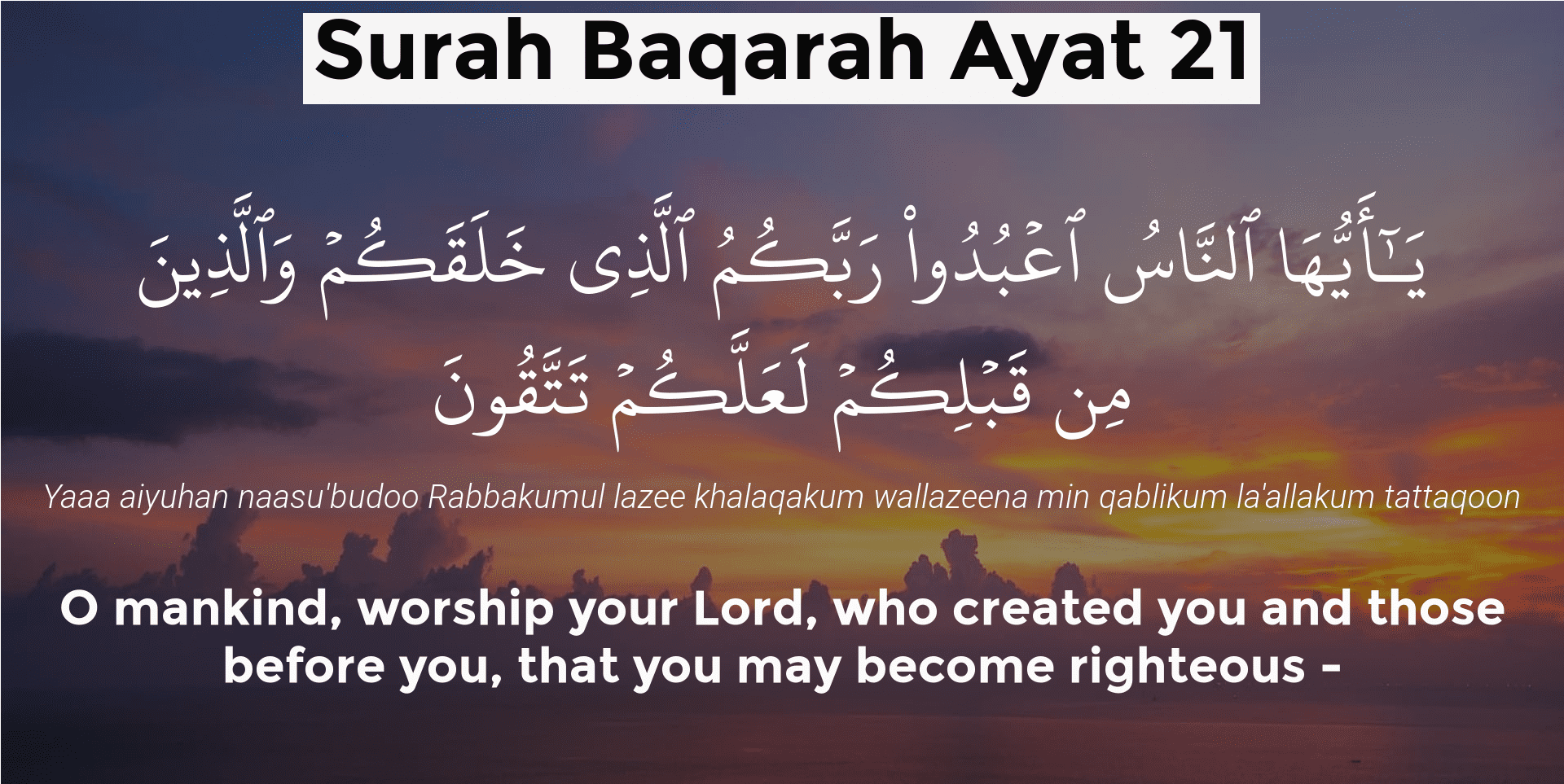
Brother Ibrahim draws inspiration from the Quran itself, specifically the verse “Yahayu Han Nasu Abudu Rabakakum” (Oh people worship your Lord). This concise verse reminds us of our core purpose: to acknowledge the One who gave us life.
To illustrate this, Brother Ibrahim doesn’t just recite the verse; he makes it relatable through everyday experiences. Imagine this: you receive a favor, like borrowing someone’s phone. Who do you thank? The person who lend it, of course! Brother Ibrahim uses this simple analogy to illustrate the logical inconsistency in worshipping anyone other than the Creator. If we instinctively thank the one who gave us a favor, why wouldn’t we express our deepest gratitude to the One who gave us life itself?
Even if someone argues they weren’t created, Allah leaves the answer to a similar question: “Did you create yourself?” It’s as clear as the sun shining in the sky, there’s no need for further proof.
Sharing his experience in Malawi, he’d borrow something from someone, then thank a random person nearby. The shocked laughter broke the ice, and he’d say, “See? It’s unnatural to thank the wrong person, just like it’s illogical to worship anyone but the One who created you.”
The beauty of this approach? It’s quick, effective, and relies on simple logic and relatable scenarios. Most people agree wholeheartedly: if Allah created us, why worship anyone else?
So, when someone acknowledges their Creator, why then would they turn to others in worship? This question, Brother Ibrahim points out, often leads to agreement. Most people, regardless of their beliefs, recognize that Jesus, Buddha, or any other deity were not their creators. The logic becomes clear: if Allah is the one who gave us life, then shouldn’t He be the recipient of our worship?
His insight, is simple yet impactful. It takes just a few verses and a relatable example to spark understanding, inviting individuals to contemplate the core truth of Tawheed.
Addressing Biblical References: A Respectful Dialogue.

When engaging with Christians, a respectful approach to the Bible is crucial. Brother Suhail emphasizes relying on common sense and logic rather than solely on scriptural interpretations. This avoids potentially inflammatory debates and fosters a dialogue based on universally understood concepts.
On this topic of Oneness of Allah? how do you talk about oneness, and what do you cover when you talk about oneness? how you do it, especially talking to Christians.
Sheikh Issa Rojas recommends starting with a simple question: “Who is Jesus for you?” This acknowledges existing beliefs and opens the door for a focused discussion. When Christians express their belief in Jesus as God, Sheikh Issa gently redirects the conversation, asking about prophets worshipping Jesus. He draws on his own Christian background to encourage them to consider biblical evidence supporting this concept.
If Christians cite New Testament verses, Sheikh Issa encourages them to find examples of prophets worshipping Jesus in the Old Testament. This highlights the absence of such references, inviting them to reexamine their assumptions. He also delves into the linguistic connection between Allah’s name and the original language of Jesus, Aramaic, offering another perspective on understanding Oneness.
Remember, many Christians haven’t deeply analyzed the theological complexities of the Trinity. Sheikh Issa suggests focusing on shared ground first, acknowledging the idea of one God as a creator. Building on this base, he gently raises questions about reconciling the concept of oneness with the Trinity. Exploring the attributes of Allah (SIFAT) helps differentiate between Allah and Jesus, providing a clearer framework for accepting Tawheed and Muhammad (ﷺ) as a prophet.
Prioritizing common sense and shared understanding over intricate theological discussions fosters more productive dialogue and avoids getting bogged down in potentially inflammatory arguments.
Sheikh Issa also shares a captivating story of a pastor who embarked on a journey of exploration and ultimately embraced Islam after three months of open conversations focused on Tawheed. This underscores the power of patient, respectful dialogue in planting seeds of understanding.
However, it’s crucial to remember that individual journeys are unique. While some may find clarity through focusing on SIFAT and logical reasoning, others may require exploring additional aspects of scripture or personal experiences. The key is to be flexible, empathetic, and respect the pace of each individual’s journey towards understanding.
Sharing Surah Al-Ikhlas: Unveiling the Essence of Oneness
Brother Suhail’s recommendation to share Surah Al-Ikhlas during Dawah conversations is incredibly insightful. This short chapter, known as the “Chapter of Oneness,” beautifully encapsulates Tawheed’s core principle.
- Qul Huwa Allahu Ahad: This opening verse declares the absolute oneness of Allah. It emphasizes that He is not simply “one among many,” but the One and Only, indivisible and unparalleled.
- Al-Samad: This verse translates to “the Eternal Refuge,” highlighting Allah’s complete self-sufficiency and independence. He is the source of all strength and refuge, and no one can compare to His power.
- Lam yalid wa lam yulad: These verses negate any concept of birth or begetting in relation to Allah. He is beyond the limitations of time and human biology, eternally existing without beginning or end.
- Wa lam yakun lahu kufuwan ahad: This final verse completes the picture by declaring that Allah has no equivalent or likeness. He is unique in His essence and attributes, and there is nothing in creation that can be compared to Him.
By sharing this deeper understanding of Surah Al-Ikhlas, we can transcend the limitations of language and cultural barriers. We can offer a glimpse into the profound reality of Tawheed, where Allah stands alone, sovereign, and incomparable.
Additional Points to Consider:
- Emphasize the beauty and simplicity of the language: Surah Al-Ikhlas is short and easy to memorize, making it accessible to anyone regardless of background.
- Connect with personal experiences: Share how understanding Tawheed has impacted your own life, providing a relatable and authentic connection with your audience.
- Encourage further exploration: Invite the listener to learn more about the Quran and Islamic teachings, fostering a continued journey of knowledge and understanding.
Conclusion:
Bridging the path to Oneness starts with a spark – a spark of curiosity, of open-mindedness, and of shared understanding.
The Thursday Live sessions provide a valuable platform for learning and sharing insights. by utilizing these powerful practices, we can share when using the GO_RAP methodology the profound truth of Tawheed with respect, clarity, and empathy.
Remember, Dawah is not about forcing beliefs, but about planting seeds of truth and allowing them to blossom in the fertile ground of each individual’s heart.
So, Let’s continue this conversation, engaging with diverse perspectives and exploring how we can effectively convey the profound message of Allah in our daily lives. let us embark on this journey with an open mind and a compassionate heart, sharing the light of Tawheed one conversation, one connection, at a time.
Click below to listen to the Recording of the session:

